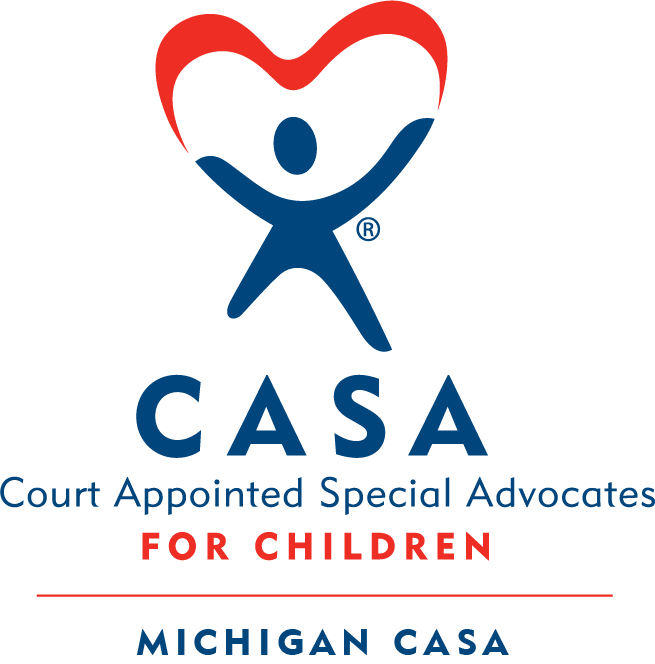Grand Rapids agency launches campaign to debunk foster care myths, recruit parents
Updated: May. 16, 2023, 10:31 a.m. Published: May. 15, 2023, 6:50 a.m.
GRAND RAPIDS, MI — May is National Foster Care Month and Michigan doesn’t have enough foster parents to support the number of kids in the system.
D.A. Blodgett-St. John’s has launched an awareness campaign to bust some of the myths floating around what foster care and parents look like in hopes of encouraging more families to become foster parents. The nonprofit is one of the largest agencies focused on the West Michigan area.
Officials say the myths that surround the foster care system are pervasive. For example, there are misconceptions like a potential foster parent needing to be married and a homeowner, as well as the idea that LGBTQ+ (lesbian, gay, bisexual, transgender, queer) individuals are not eligible and that foster parents have no parental say for the children in their care.
Stacey Goodson, a recruitment, retention and training specialist at D.A. Blodgett-St John’s, said this campaign will use the month of May to spread the truth about foster care on social media, TV and more.
“We’re hoping that if we’re able to debunk some of the myths that people have about becoming a foster parent, then there’ll be more people that might consider asking more questions, and even consider being a foster parent,” Goodson said.
Goodson has been a foster parent herself to over 40 children over a span of 10 years, having the opportunity to add three of them to her family permanently through adoption and guardianship.
There are about 10,000 children in the foster care system in Michigan. There are 500 children in foster care in Kent County and D.A. Blodgett-St. John’s has 100 current foster homes, according to Amber Jones, the director of communications. She said there are more homes in Kent County through other agencies.
“We are in situations on a daily basis where kids are either coming into care or moving from one foster care placement to another, and we just simply are finding ourselves in a space that we don’t have enough foster homes for these kiddos to go to,” Goodson said.
When a foster parent becomes ill or can’t care for the children, the children are moved to multiple houses for a couple days at a time until they are able to find somewhere stable for them to go.
Kristy Robertson has been a licensed foster parent since November 2020, having around 15 children from infants to 16-year-olds placed in her care. Usually, Robertson cares for two or three at a time in sibling groups while also taking care of her four biological children.
“This is definitely our whole family,” Robertson said. “We are a foster family. We’re not just foster parents. I think that it’s important to include our own biological kids into the process because I think that it’s important they’re a part of the team. I will say it is the hardest thing that we have ever done as a family and myself as an individual, but it is the most rewarding experience.”
Robertson has seen the same problems in the system, getting calls asking to take more children in her already full house because there are not enough hands in the system. She said the people in the system are doing their best, but she feels failure every time she can’t take in more kids.
Robertson emphasized that anyone with “an extra bedroom and has the willingness to learn and to love” can be a foster parent.
She emphasized that if an individual can’t be a foster parent, there are other ways to support the system including helping with transportation, meals, clothing, supplies or even becoming a respite family, which is a short-term foster home for when a foster family needs a break or extra support.
Robertson also highlighted the importance of being trauma-informed, which means understanding and being aware that reactions or behaviors of a child are a byproduct of their previous environment. She said being more educated on these triggers or habits of children will add “more tools to your toolbox.”
Goodson said the COVID-19 pandemic made it harder on children with trauma and the numbers of parents in the system as many foster parents dealt with mental health and financial struggles. This made it harder for children in foster care to be placed in long-term housing.
“During the pandemic, these kids that were already in tough situations, were put into these predicaments,” Robertson said. “These situations were with people that were unhealthy, and then you put them stuck in a home for however many months at a time, and then (there are) mental health issues. As a byproduct, the kids that are coming into care, they need a lot of support.”
Finding placements for teenagers in foster care is the biggest struggle. Goodson said potential foster parents fear that teenagers will have more challenging behaviors. From her own experience of hosting teenagers, Goodson said teens are just kids too.
Goodson hopes the campaign also tells foster parents where to go when they have these concerns. D.A. Blodgett-St. John’s, located at 2172 Dean Lake Ave. NE, offers therapy, biological parent visit support, and services for children with harder times adjusting to new living situations.
For Robertson, moments like seeing the baby her family started fostering a couple of months ago look at them with happiness and safety in her eyes or seeing the older children start to enjoy school or get good grades makes the difficulty of the foster system fall away.
She hopes to encourage others to get involved with the foster system.
“It’s about all those little glimpses of progress in these kids,” Robertson said. “They’ve come from hard places and they’ve had some pretty tough things happen to them, yet having the opportunity to witness them growing and then healing, beginning in that process of learning what it’s like to feel safe.”

